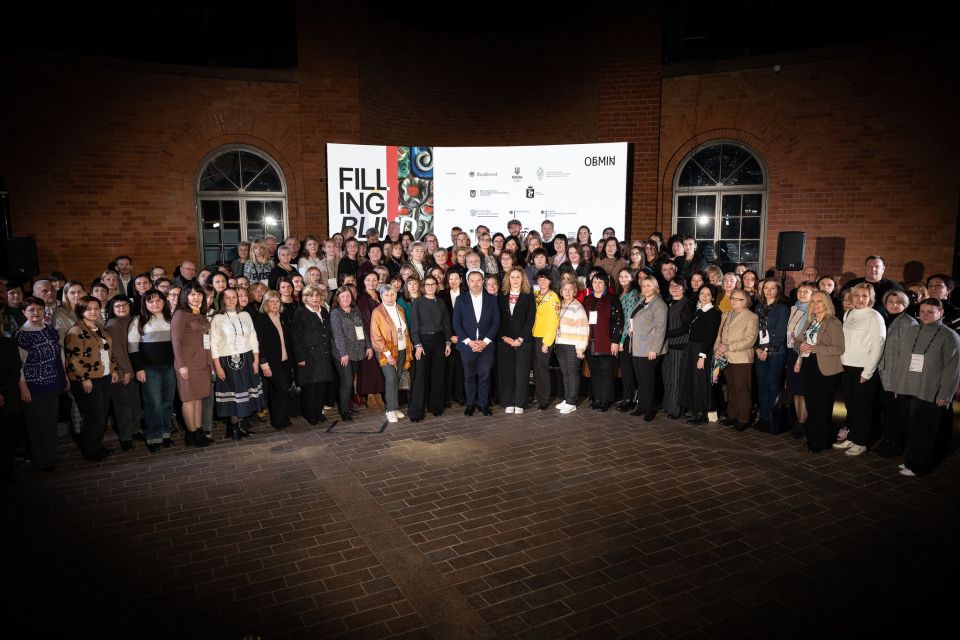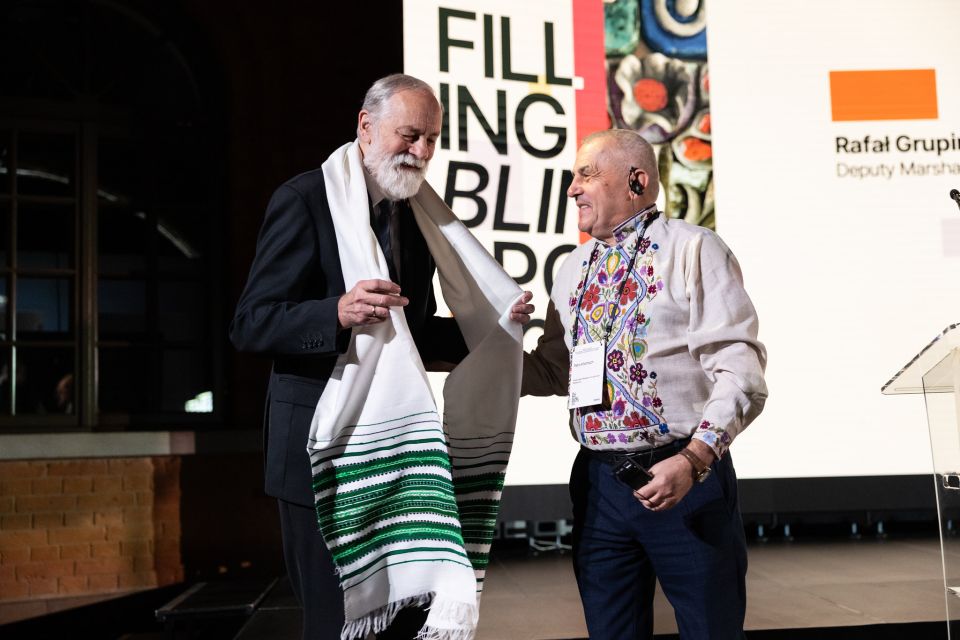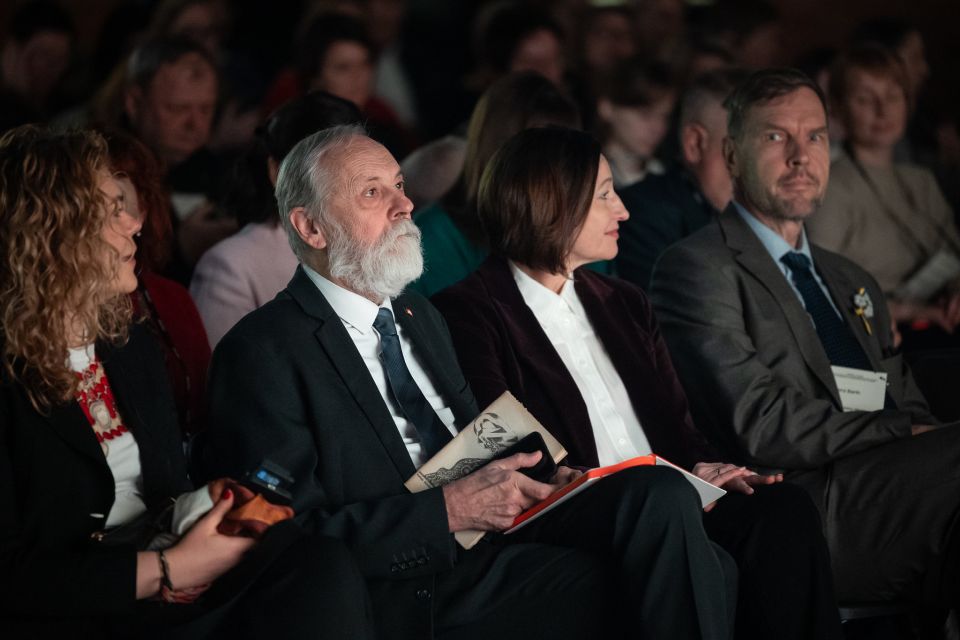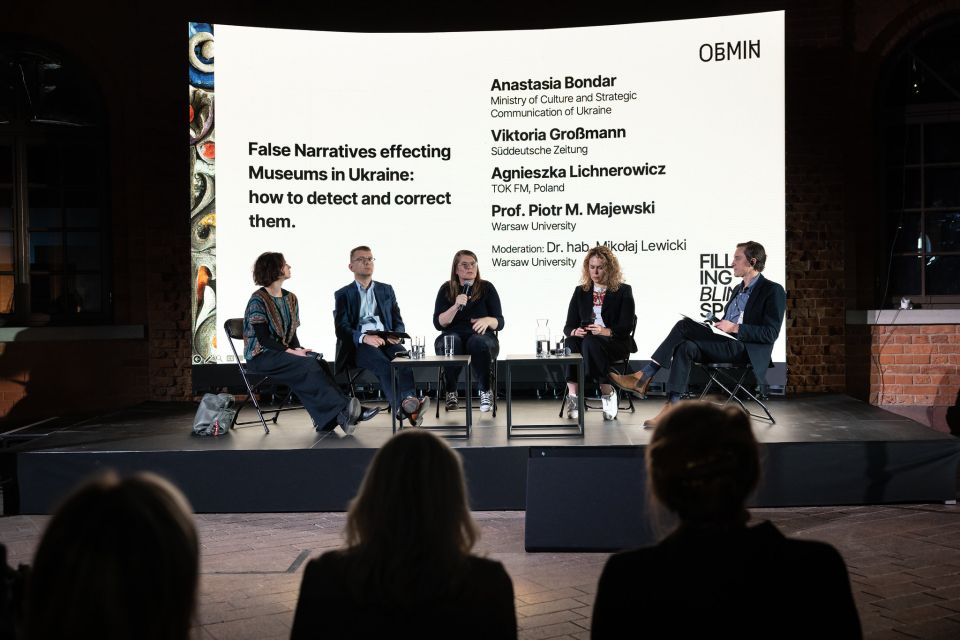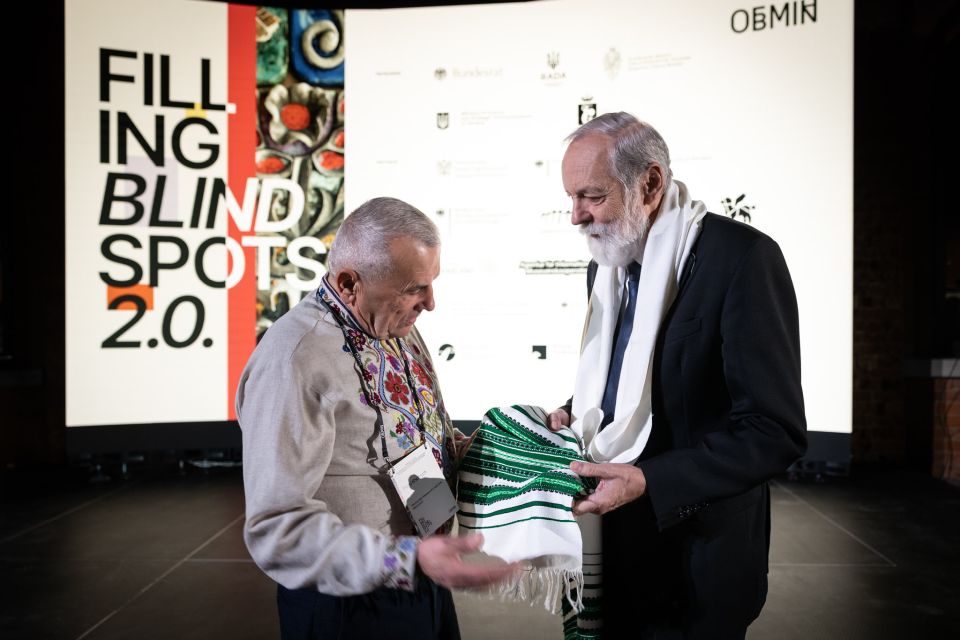SECOND DAY AND SUMMARY OF THE CONFERENCE IN WARSAW.
November, 2024
Museums call for Decolonization in Ukraine
Biggest Gathering of Ukrainian Museum publishes “10 Thoughts” on the future
Over 100 museums from all over Ukraine published “10 Thoughts: How to Live with Our Past – How to Build our Future” in what turned out to be the biggest gathering of Ukrainian museums since the outbreak of the war by Russia in 2014. The conference took place in Warsaw, organized by the Foundation OBMIN, a platform for currently 142 Ukrainian museums, under the patronage of the President of the Ukrainian Parliament, the Marshall of the Polish Senate and the President of the German Bundesrat – a first time cooperation ever.
The museums call for a thorough discussion on how to free museums from the colonial past, mainly imposed on them by Russia, while accepting the complex consequences of this history: “We cannot choose our history, but it is up to us how we reflect it.” At the same time, they underline that “Ukraine is a rich and diverse country, where people have different experiences and histories. Being Ukrainian, like other nations, doesn’t mean being monolithic. Cultural and regional diversity enriches us and allows us to move forward as one people.” The museums draw a comparison with other nations who went through the difficult experience of having been colonized and how in these countries, be it in the Baltic republics or in Africa or Asia, people struggle to accept the past but to overcome its shadows. Museums also in Ukraine need to change: “Decolonization is not merely about rejecting history but about forming a new vision of the future.” Decolonization needs an open and public discussion how best to deal with exhibits or narratives of colonial times, “avoiding simple answers”. This also requires international cooperation and dialogue with neighboring countries like Poland or Germany. There are difficult aspects in the history that need to be dealt with, e. g. by “joint exhibitions exploring different interpretations of complex historical events”. Irina Konstantkevych, member of the Ukrainian parliament, pointed to the importance of these “10 Thoughts” by Ukrainian museums and announced that the will be included in further discussions and actions in the parliament.
Rafał Głupiński, Vice Marshal of the Polish Senate, underlined: “If we don’t care for our past, we will lose our future.” He was handed a traditional scarf by the museums from the Volhynia region where during and after World War II mutual atrocities between Ukrainian and Poles took place, still posing challenges between both countries’ cooperation.
Over 100 museums from all over Ukraine published “10 Thoughts: How to Live with Our Past – How to Build our Future” in what turned out to be the biggest gathering of Ukrainian museums since the outbreak of the war by Russia in 2014. The conference took place in Warsaw, organized by the Foundation OBMIN, a platform for currently 142 Ukrainian museums, under the patronage of the President of the Ukrainian Parliament, the Marshall of the Polish Senate and the President of the German Bundesrat – a first time cooperation ever.
The museums call for a thorough discussion on how to free museums from the colonial past, mainly imposed on them by Russia, while accepting the complex consequences of this history: “We cannot choose our history, but it is up to us how we reflect it.” At the same time, they underline that “Ukraine is a rich and diverse country, where people have different experiences and histories. Being Ukrainian, like other nations, doesn’t mean being monolithic. Cultural and regional diversity enriches us and allows us to move forward as one people.” The museums draw a comparison with other nations who went through the difficult experience of having been colonized and how in these countries, be it in the Baltic republics or in Africa or Asia, people struggle to accept the past but to overcome its shadows. Museums also in Ukraine need to change: “Decolonization is not merely about rejecting history but about forming a new vision of the future.” Decolonization needs an open and public discussion how best to deal with exhibits or narratives of colonial times, “avoiding simple answers”. This also requires international cooperation and dialogue with neighboring countries like Poland or Germany. There are difficult aspects in the history that need to be dealt with, e. g. by “joint exhibitions exploring different interpretations of complex historical events”. Irina Konstantkevych, member of the Ukrainian parliament, pointed to the importance of these “10 Thoughts” by Ukrainian museums and announced that the will be included in further discussions and actions in the parliament.
Rafał Głupiński, Vice Marshal of the Polish Senate, underlined: “If we don’t care for our past, we will lose our future.” He was handed a traditional scarf by the museums from the Volhynia region where during and after World War II mutual atrocities between Ukrainian and Poles took place, still posing challenges between both countries’ cooperation.
